The new Florida Gators docuseries glossed over a lot. A look into what’s missing
- Oops!Something went wrong.Please try again later.
- Oops!Something went wrong.Please try again later.
- Oops!Something went wrong.Please try again later.
- Oops!Something went wrong.Please try again later.
If you watched “Untold: Swamp Kings” looking for an in-depth dive into one of college football’s most storied programs, odds are you left a bit disappointed.
Released Tuesday, Netflix’s new four-part docuseries explores the Florida Gators teams that won two championships between Coach Urban Meyer’s tenure from 2005 to 2010. The issue is – and much of social media would agree – that it doesn’t dive enough into the dynamics of the team outside of the perspectives of Meyer, Tim Tebow, Brandon Spikes and Brandon Siler. To call this a glorified UF recruiting video wouldn’t be too far off.
Part of the reason that the Gators captured the college football world’s attention was the collection of players. Consider this: Tebow, Aaron Hernandez, Cam Newton, Riley Cooper and the Pouncey twins all donned the orange and blue at one point. That’s a lot of personality to deal with and the documentary made virtually no mention of that.
In order to fill in some blanks, here’s a bit of what “Swamp Kings” missed.
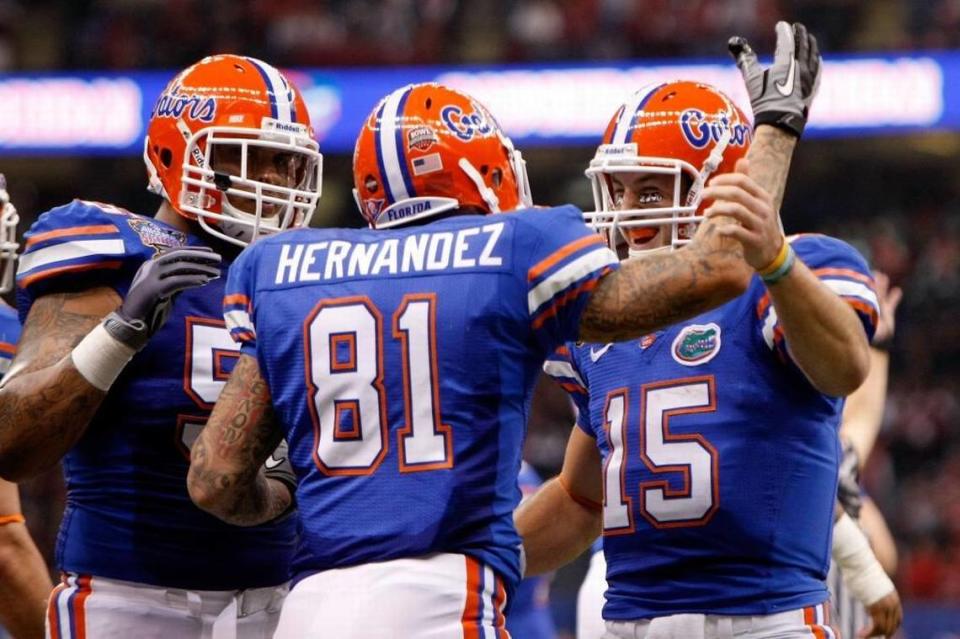
Aaron Hernandez
Hernandez’s time at Florida was condensed into a few moments: once when listing Florida’s stellar 2007 recruiting class and another time when Tebow took responsibility for a bar fight that involved the All-American tight end.
“I blame myself as much for that too,” Tebow said in the docuseries, describing the altercation as Hernandez hurting a guy who spewed insensitive “racist comments” at him. “I should’ve got him out easier, I should’ve got him out faster, I should’ve done more.”
Hernandez, however, happened to be one of the most polarizing members of that Gators squad. Not only was he convicted of murder after leaving Florida, Hernandez avidly used marijuana during his time in Gainesville, so much so that he was suspended one game in 2008 and later told his lawyer that “every time I was on the field I was high on weed,” according to the Boston Globe. Meyer even tried to expel him from the team but relented due to Tebow’s pleas, the Boston Globe also reported.
None of this, however, made the docuseries. It was certainly worth mentioning considering his time as a Gator led the New England Patriots to draft him in 2010. After three seasons as a Patriot, he’d be arrested and charged with first degree murder. Hernandez would be convicted of the murder in 2015 and found dead in his prison cell roughly two years later.
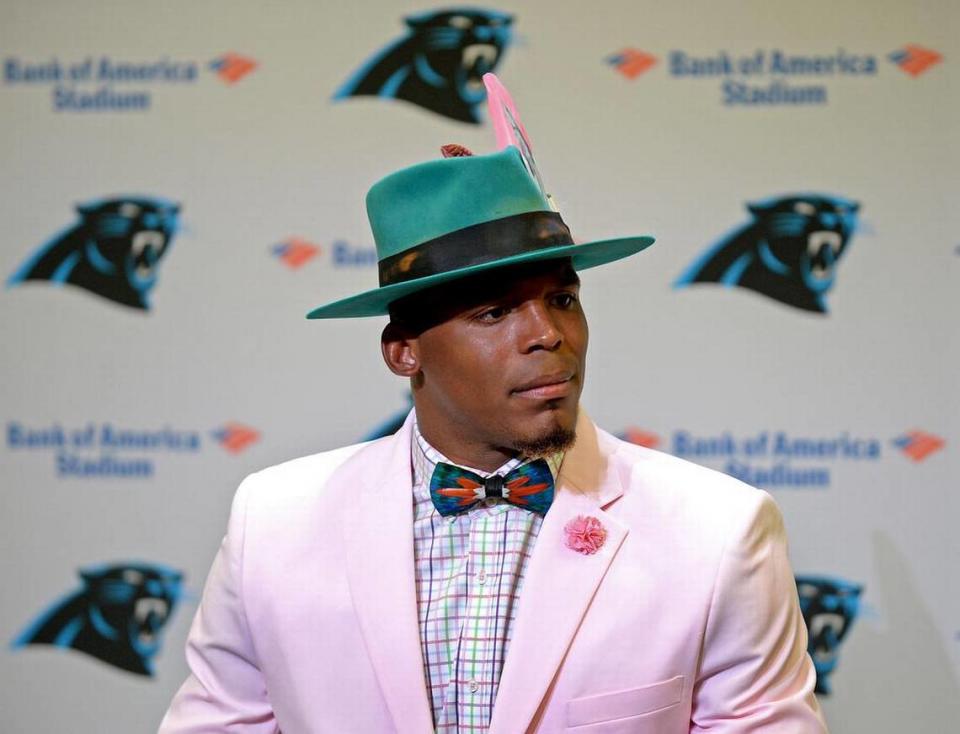
Cam Newton
Newton could’ve added a valuable perspective to “Swamp Kings.”
He was a five-star recruit in 2007. He was Tebow’s backup. And, prior to transferring, he was accused of cheating as well as arrested on a burglary charge for allegedly stealing another student’s laptop, the latter of which his father Cecil Newton Sr. still believes to be blown out of proportion
“It’s an egregious rush to judgement over a stolen laptop,” Cecil said in 2020 on “The Cam Chronicles” podcast.
Granted, Newton’s two seasons at Florida were a tiny part of his football journey that includes a Heisman Trophy, a BCS national championship at Auburn and a NFL MVP. Still, for Newton’s time in Gainesville to be shortened to a few highlights and a montage about that ‘07 recruiting class was a bit puzzling.
Odds are Newton didn’t want to be interviewed for this project but his story – specifically what it was like to backup Tebow or an explanation of his off-the-field issues – would’ve definitely added another layer to the docuseries.
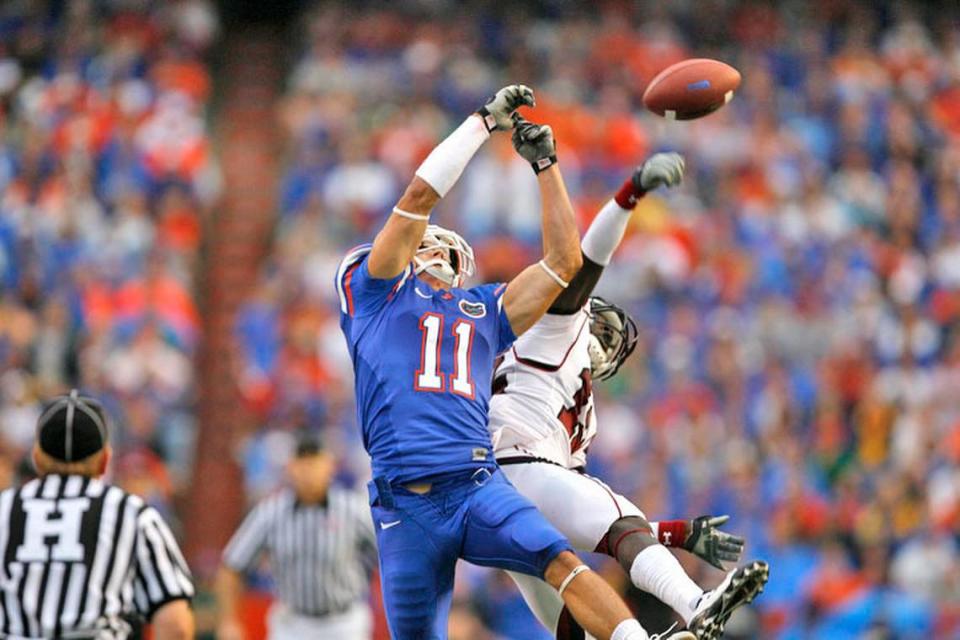
Riley Cooper
The average football fan likely found out about Riley Cooper in 2013 when he came under fire for using a racial slur at a Kenny Chesney concert.
That said, anybody that throws around the epithet like he did in the video likely has used it before. The question becomes when. And if the answer is college or anytime before that then the filmmakers missed an opportunity to uncover the locker room dynamic between Cooper and his teammates.
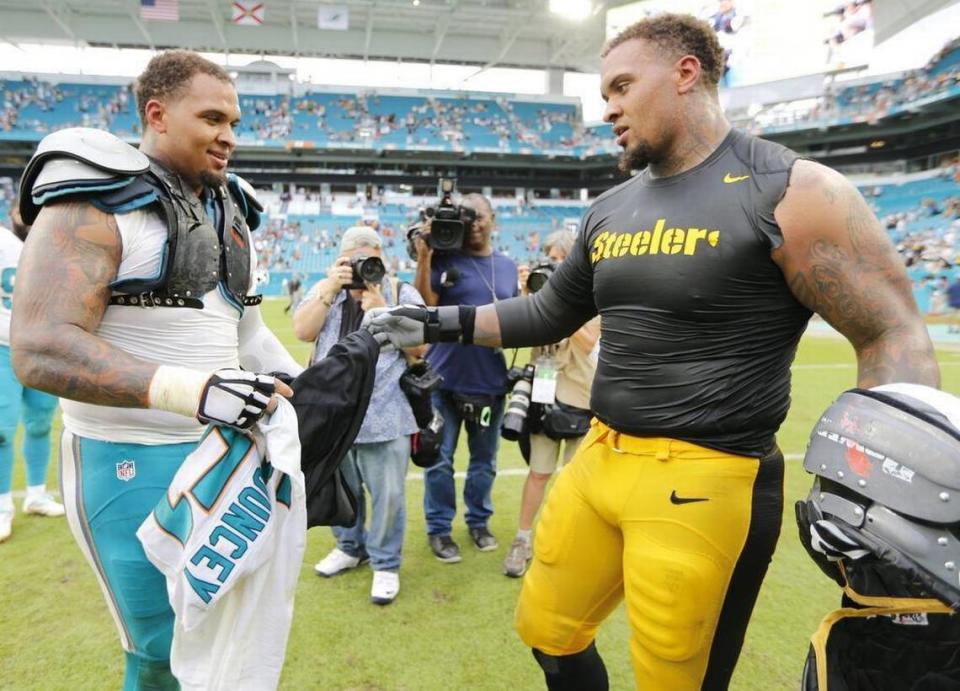
Pouncey Twins
If only one player from the Gators championship squads makes the Pro Football Hall of Fame, it will be Maurkice Pouncey.
The former Pittsburgh Steeler racked up five All-Pro selections (two first-team, three second-team), nine Pro Bowls and a spot on the NFL 2010s All-Decade team. That neither Maurkice nor his brother Mike received nothing more than a few video clips during the docuseries was an issue.
Their contributions on the field need little introduction. Between them, the brothers have three All-American selections, two All-SEC picks and a Rimington Trophy. But it was some of their off-the-field doings – namely their friendship with Hernandez – that could’ve been a source of great stories.
Again, how these personalities mixed could have been a real riveting piece for viewers.
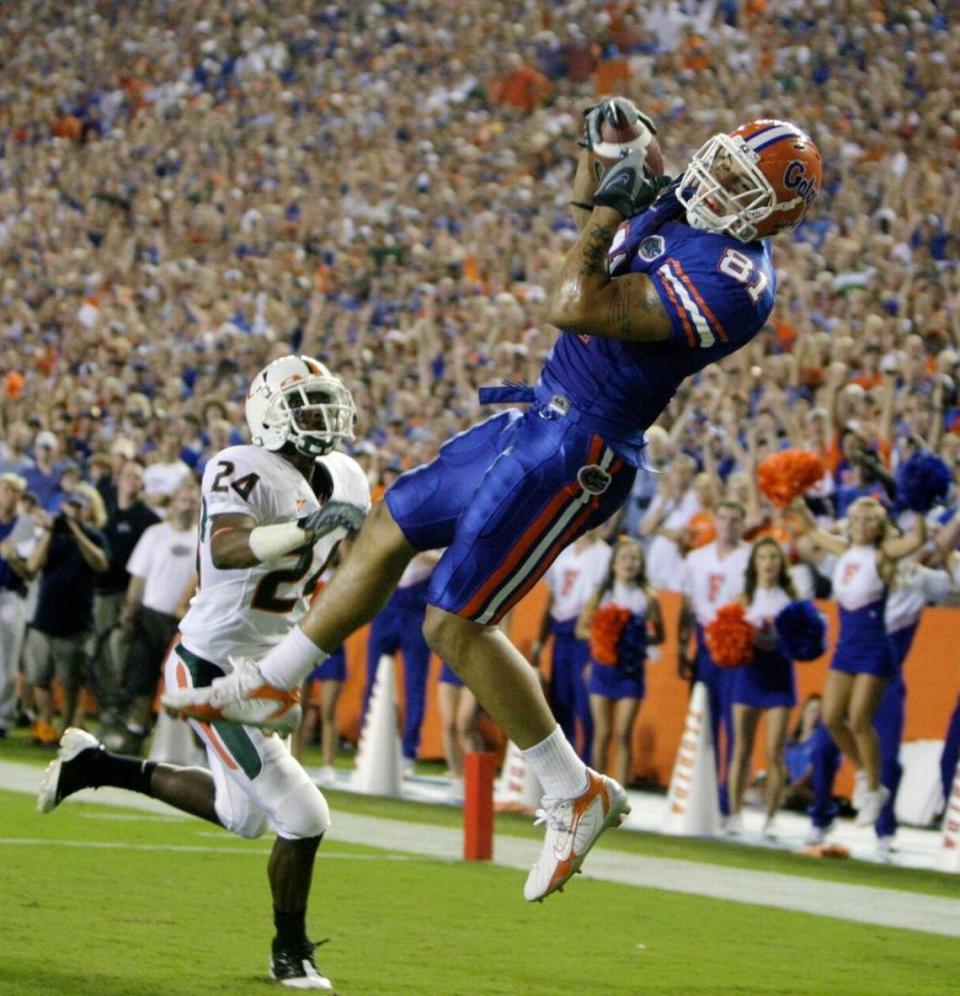
Player incidents:
Although the docuseries does address some of the players’ incidents, “Swamp Kings” by no means dives deep enough.
The arrests were condensed to a brief segment in the third episode of the series.
Additionally, quite a few incidents were left out including Carlos Dunlap’s DUI arrest that kept him out of the 2009 SEC Championship game, the Sporting News report about Percy Harvin’s alleged fight with a wide receiver coach, Newton’s aforementioned laptop incident and Hernandez’s aforementioned rampant marijuana use. Meyer also acknowledged not being the quickest to remove players yet explained that he didn’t want to damage their futures. He specifically pointed to Avery Atkins, a defensive back who Meyer dismissed from the program after being charged with domestic battery. Atkins later passed away from an overdose after the charge was dropped.
“Criticism started coming because people felt I should start kicking players off the team,” Meyers said in the docuseries. “I’m not doing that. I saw what happened to a player we did throw to the street and that’ll haunt me the rest of my life.”
Aside from just being an opportunity for the players to tell their side of the story, giving more time to the issues surrounding the Gators could have added depth and character to the project.
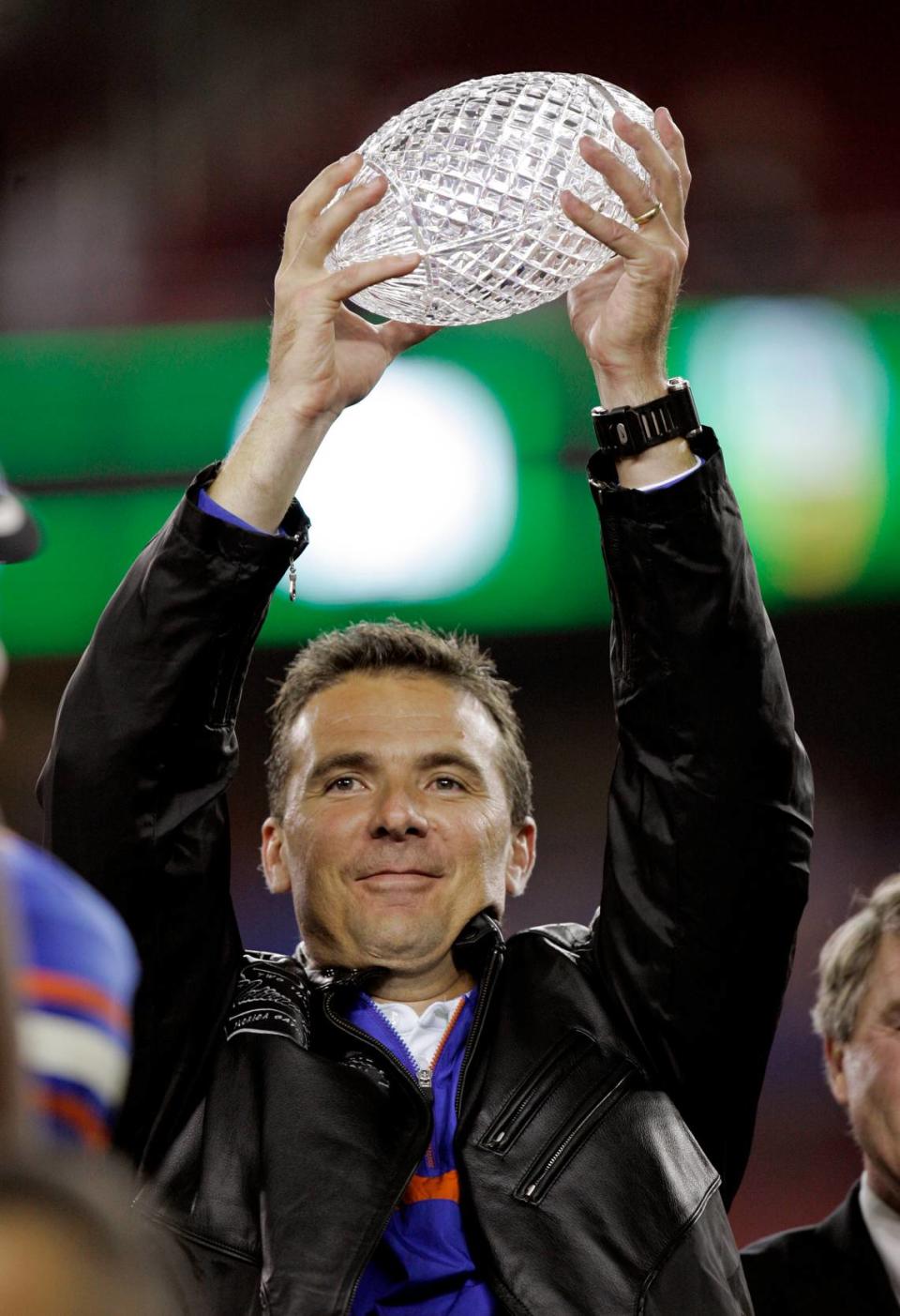
Urban Meyer’s last hurrah:
The casual viewer would probably think Meyer’s tenure at Florida ended in 2009. That, after all, is where the docuseries ends.
Meyer, however, left after the Gators’ disappointing 8-5 season in 2010. That year had its own trials that the filmmakers could’ve dove into: Meyer’s verbal altercation with reporter Jeremy Fowler, Chris Rainey’s alleged “time to die” text that he sent to his girlfriend, the fall from grace.
Although Meyer does get candid about his Ambien usage during the 2009 season, it would have been interesting to see how his addiction affected his final season, his players and family. Even more intriguing would be to see how the Gators’ subpar season affect his family and their day-to-day in Gainesville. Instead, the docuseries just ends with a few “where are they nows” and Meyer talking about how his teams made magic happen at The Swamp.

